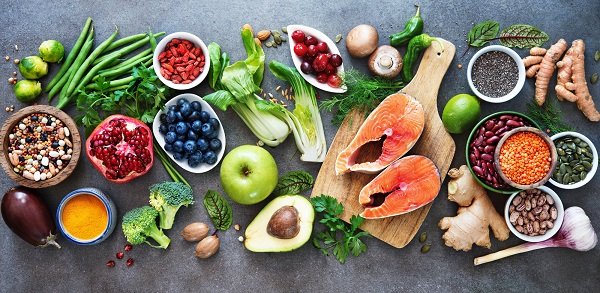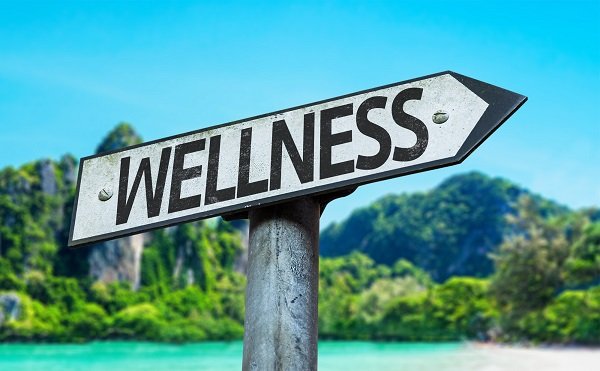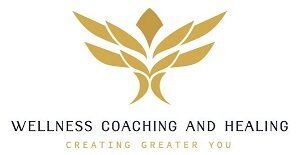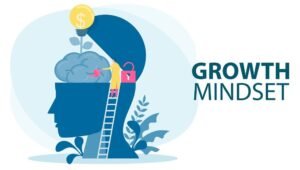Top 12 Wellness Trends in 2026

Introduction
The wellness landscape in 2026 represents a profound shift in how we approach health and wellbeing. We’ve moved beyond reactive healthcare to embrace preventative, personalised strategies that optimise not just lifespan, but health span—the number of years we live in good health.
Today’s wellness trends reflect a more sophisticated understanding of human health. We’re seeing the convergence of ancient wisdom and cutting-edge technology, the integration of data-driven insights with holistic practices, and a growing recognition that true wellness encompasses physical, mental, emotional, and spiritual dimensions.
The wellness economy continues its remarkable growth trajectory, projected to reach $8.5 trillion by 2027. This expansion isn’t just about market size—it reflects a fundamental change in priorities. People are investing in their health proactively, seeking sustained transformation rather than quick fixes, and recognising that optimal wellbeing is the foundation for everything else in life.
Whether you’re managing chronic conditions, navigating life transitions, seeking to optimise your performance, or simply committed to living your healthiest, most vibrant life, these 2026 wellness trends offer valuable insights and practical pathways forward.
Let’s explore the 12 trends that are reshaping wellness in 2026.
Table of Content
- Introduction
- 1. Longevity & Health span Optimisation
- 2. AI-Powered Personalised Wellness
- 3. Brain Health & Cognitive Performance
- 4. Functional Fitness for Life
- 5. Recovery, Sleep & Stress Optimisation
- 6. Emotional Fitness & Mental Resilience
- 7. Precision Nutrition & Food as Medicine
- 8. Gut Health & Immune Support
- 9. Integrative & Holistic Health
- 10. Community & Social Wellness
- 11. Nature-Based & Sustainable Living
- 12. Wellness Travel & Transformative Experiences
- Summary
1. Longevity & Health Span Optimisation
The focus on longevity in 2026 goes far beyond simply adding years to life—it’s about adding life to years. Health span optimisation represents a fundamental shift from treating disease to actively building resilience, vitality, and sustained wellness throughout our entire lifespan.
Why It Matters in 2026
Research shows that our biological age can differ significantly from our chronological age. The exciting news is that we have far more control over this than previously thought. Through targeted lifestyle interventions, we can influence cellular health, metabolic function, and the aging process itself.
Key areas of focus include:
- Cellular Health: Supporting mitochondrial function, managing oxidative stress, and promoting healthy cellular regeneration through nutrition, movement, and targeted supplementation.
- Metabolic Balance: Optimising blood sugar regulation, insulin sensitivity, and metabolic flexibility—factors that significantly impact how we age.
- Preventative Diagnostics: Using advanced biomarker testing to identify potential health issues years before symptoms appear, allowing for early intervention.
- Inflammation Management: Chronic inflammation accelerates aging. Managing it through diet, stress reduction, and lifestyle choices is fundamental to longevity.
How to Get Started
Begin with the foundations: prioritise quality sleep, maintain consistent movement throughout your day, focus on nutrient-dense whole foods, and manage stress effectively. Consider working with a wellness professional who can help you develop a personalised longevity strategy based on your unique health profile and goals.
Expert Tips
The most sustainable approach to longevity isn’t about extreme interventions—it’s about consistent, evidence-based practices that support your body’s natural healing and regenerative capacity. Small daily actions compound into significant long-term benefits.
2. AI-Powered Personalised Wellness
Personalised wellness has evolved from a trendy concept to an accessible reality in 2026, powered by artificial intelligence and advanced health monitoring technologies. This represents one of the most transformative shifts in how we approach individual health optimisation.
Why It Matters in 2026
The one-size-fits-all approach to wellness simply doesn’t work because every person’s biology, lifestyle, preferences, and health needs are unique. AI-powered personalisation allows us to create highly targeted strategies that actually work for your specific circumstances.
Modern wellness technology enables:
- Biomarker-Based Insights: Understanding your unique biochemistry through comprehensive health data, from basic metabolic panels to advanced genetic and microbiome testing.
- Wearable Technology Integration: Continuous monitoring of heart rate variability, sleep patterns, activity levels, and stress markers provides real-time feedback on how your body responds to different interventions.
- Data-Driven Decision Making: AI algorithms can identify patterns in your health data that might not be obvious, helping predict potential issues and optimise interventions.
- Adaptive Recommendations: As your health evolves, AI-powered systems can adjust recommendations, ensuring your wellness plan grows with you.
How Professional Coaching Enhances Personalisation
While technology provides valuable data, interpreting that data and translating it into sustainable behaviour change is where professional wellness coaching becomes invaluable. A certified health and wellness coach works alongside you to:
- Clarify your personal health and wellness goals
- Create actionable strategies tailored to your lifestyle and preferences
- Provide accountability and support as you implement changes
- Help you navigate obstacles and maintain motivation
- Ensure your approach aligns with your values and life circumstances
Getting Started with Personalised Wellness
The journey to personalised wellness begins with self-awareness. Start tracking basic metrics like energy levels, sleep quality, and stress patterns. Then consider working with a professional who can help you interpret this information and develop a customised approach that fits your life.
Ready to discover your personalised path to optimal wellness?
Book a free 15-minute discovery session to explore how professional coaching can help you achieve your unique health goals.
3. Brain Health & Cognitive Performance
Brain health has emerged as a critical focus area in 2026, moving beyond memory concerns to encompass mental clarity, focus, emotional regulation, and long-term cognitive resilience. This reflects our growing understanding that brain health underpins every aspect of wellness.
Why It Matters in 2026
Our brains are under unprecedented stress in modern life—information overload, constant connectivity, environmental toxins, chronic stress, and sedentary lifestyles all impact cognitive function. Simultaneously, research continues to reveal the brain’s remarkable capacity for neuroplasticity and regeneration throughout life.
Key aspects of brain health optimisation include:
- Cognitive Function: Supporting memory, focus, processing speed, and mental clarity through lifestyle interventions.
- Neuroprotection: Implementing practices that protect against cognitive decline and support long-term brain health.
- Mental Clarity & Focus: Managing the cognitive load of modern life and developing strategies for sustained attention and productivity.
- Emotional Regulation: Understanding the brain-emotion connection and developing tools for emotional resilience.
Practical Brain Health Strategies
Brain health isn’t just about puzzles and supplements. The most effective strategies include regular physical exercise (particularly cardiovascular activity), quality sleep, stress management, continuous learning, social engagement, and a nutrient-rich diet emphasising omega-3 fatty acids and antioxidants.
Expert Tips
Your brain thrives on novelty, challenge, and connection. Engage in activities that require you to learn new skills, maintain strong social relationships, and prioritise stress management. These foundational practices often have more impact than any single supplement or “brain training” app.
4. Functional Fitness for Life

Functional fitness has replaced aesthetic-focused exercise trends, reflecting a mature understanding that true fitness means moving well and staying capable throughout life. In 2026, the focus has shifted from how you look to how you function.
Why It Matters in 2026
Research consistently shows that strength, mobility, balance, and cardiovascular fitness are among the strongest predictors of healthy aging and quality of life. Functional fitness prepares your body for the demands of daily life while building resilience against age-related decline.
Key components include:
- Strength Training for Longevity: Building and maintaining muscle mass becomes increasingly important as we age, supporting metabolism, bone density, and physical independence.
- Mobility & Flexibility: Maintaining range of motion in joints and flexibility in muscles prevents injury and keeps you moving freely.
- Balance & Stability: Critical for preventing falls and maintaining confidence in movement as we age.
- Movement Throughout the Day: Breaking up sedentary time with regular movement “snacks” has profound health benefits beyond dedicated exercise sessions.
Interval Walking: Simple yet highly effective, combining regular walking with brief periods of increased intensity provides cardiovascular benefits accessible to most fitness levels.
Overcoming Exercise Barriers
Many people struggle with maintaining consistent exercise routines due to motivation challenges, time constraints, or past negative experiences. This is where professional wellness coaching makes a significant difference.
A health and wellness coach can help you:
- Identify sustainable approaches that fit your schedule and preferences
- Build a gradual progression that prevents injury and burnout
- Navigate setbacks and maintain consistency
- Connect movement to your broader wellness and life goals
- Develop intrinsic motivation rather than relying on willpower alone
Getting Started
Start where you are. Even 10-minute movement sessions have value. Focus on consistency over intensity, and remember that the best exercise program is one you’ll actually maintain long-term.
Struggling to maintain healthy exercise habits?
Contact us and find how coaching can help you build sustainable movement practices tailored to your lifestyle and goals.
5. Recovery, Sleep & Stress Optimisation

Quality sleep and effective stress management have emerged as non-negotiable pillars of health in 2026, yet many Australians continue to struggle with both. The connection between poor sleep and stress creates a vicious cycle: stress disrupts sleep, and inadequate sleep diminishes our capacity to manage stress effectively.
Research shows that nearly 40% of Australian adults experience inadequate sleep, with stress being one of the primary culprits. When we’re stressed, our bodies produce cortisol, making it difficult to fall asleep and stay asleep. Poor sleep then impairs our emotional regulation, decision-making, and resilience—leaving us even more vulnerable to stress the following day.
Breaking this cycle requires a comprehensive approach to both sleep hygiene and stress management. Quality sleep isn’t just about duration—it’s about consistency, environment, and the practices that support restorative rest. This includes maintaining regular sleep and wake times, creating a cool, dark bedroom environment, limiting screen exposure before bed, and managing caffeine intake throughout the day.
Equally important is developing effective stress management strategies. Chronic stress keeps our nervous system in a state of high alert, making deep, restorative sleep nearly impossible. Practices that activate the parasympathetic nervous system—such as deep breathing, meditation, gentle movement, and spending time in nature—help shift our bodies from “fight or flight” into “rest and digest” mode.
Recovery practices are also gaining recognition as essential, not indulgent. Activities like gentle stretching, progressive muscle relaxation, journaling, or even a brief evening walk can significantly improve both stress levels and sleep quality. For busy Australians juggling work, family, and personal commitments, even 10-15 minutes of intentional recovery practice can make a meaningful difference.
The key is consistency rather than perfection. Small, sustainable changes to your evening routine and stress management practices compound over time, leading to improved sleep quality, better stress resilience, and enhanced overall wellbeing. When sleep and stress are managed effectively, every other aspect of health becomes easier to address.
How a Health and Wellness Coach Can Help
If you’re struggling with sleep issues or stress management, a professional health and wellness coach can provide the personalised support you need to break the cycle. A coach helps you identify the specific stress triggers and sleep disruptors affecting your unique situation, then works with you to develop realistic strategies that fit your lifestyle and schedule. Through regular accountability and support, you’ll build sustainable habits around sleep hygiene and stress management—moving from knowing what to do to actually doing it consistently. With expert guidance, you can transform your relationship with sleep and stress, creating the foundation for lasting wellness.
Struggling with sleep or feeling overwhelmed by stress?
Book your free 15-minute discovery session to explore how professional coaching can help you achieve better rest and resilience.
6. Emotional Fitness & Mental Resilience
Build stronger mental and emotional resilience
In 2026, we’ve shifted from reactive mental health crisis management to proactive emotional fitness development. This reflects a maturation in how we understand and support mental and emotional wellbeing.
Why It Matters in 2026
Emotional fitness isn’t about being happy all the time—it’s about developing the capacity to navigate life’s challenges, regulate emotions effectively, maintain perspective, and bounce back from setbacks. It’s a skill set that can be developed, just like physical fitness.
Key aspects include:
- Emotional Intelligence: Developing awareness of your own emotions and those of others, and using this awareness effectively in relationships and decision-making.
- Stress Optimisation: Moving beyond stress management to understand how moderate, manageable stress can actually enhance resilience and performance.
- Burnout Prevention: Implementing practices that maintain sustainable energy and engagement rather than waiting until exhaustion forces change.
- Mental Resilience: Building psychological flexibility and the capacity to maintain equilibrium through challenges.
- Digital Boundaries: Creating healthy relationships with technology that enhance rather than deplete wellbeing.
The Role of Professional Support
Emotional fitness development is one area where professional guidance significantly accelerates progress. A certified wellness coach provides a supportive partnership that helps you:
- Develop self-awareness of patterns that may be limiting your wellbeing
- Build practical stress management techniques tailored to your life
- Create accountability for prioritising your emotional health
- Navigate life transitions with greater ease and confidence
- Develop sustainable self-care practices that actually fit your schedule
Practical Strategies
Emotional fitness practices include mindfulness and meditation, regular physical activity, maintaining strong social connections, setting healthy boundaries, engaging in activities that bring joy and meaning, and developing a consistent self-care routine. Small, consistent practices often have more impact than intensive but unsustainable interventions.
Expert Tips
Emotional wellness isn’t a destination but an ongoing practice. Be patient with yourself as you develop new skills, and remember that seeking support isn’t weakness—it’s wisdom.
Experiencing stress, burnout, or struggling with healthy habits?
Professional wellness coaching provides the support, accountability, and strategies you need to build lasting emotional resilience.
7. Precision Nutrition & Food as Medicine

Nutrition in 2026 has evolved beyond calorie counting and generic dietary guidelines to embrace precision nutrition—an approach that recognises the profound impact of individualized dietary strategies on health outcomes.
Why It Matters in 2026
We now understand that individual responses to foods vary dramatically based on genetics, gut microbiome composition, metabolic health, lifestyle factors, and even meal timing. What optimises energy and health for one person may not work for another.
Key developments in precision nutrition include:
- Food as Medicine: Growing recognition that dietary choices can prevent, manage, and sometimes reverse chronic health conditions.
- Anti-Inflammatory Eating: Understanding that chronic inflammation underlies most chronic diseases, making anti-inflammatory food choices a cornerstone of health.
- Gut Microbiome Optimisation: Feeding beneficial gut bacteria through diverse plant foods, fermented foods, and fiber-rich choices.
- Metabolic Health: Moving beyond weight-focused approaches to prioritise blood sugar regulation, metabolic flexibility, and body composition.
- Regenerative Agriculture: Connecting personal health to planetary health through food choices that support sustainable farming practices.
Practical Approaches
While high-tech testing has its place, most people benefit enormously from foundational nutrition practices: eating mostly whole, minimally processed foods; including plenty of colourful vegetables; choosing quality protein sources; staying well-hydrated; and developing a healthy relationship with food that supports rather than stresses wellbeing.
Navigating Nutrition Confusion
With conflicting dietary advice everywhere, many people feel overwhelmed and confused about what to eat. Working with a health and wellness coach provides clarity, helping you:
- Cut through nutrition noise to find what actually works for you
- Address specific health goals through targeted dietary strategies
- Build sustainable eating patterns rather than following restrictive diets
- Overcome emotional eating and develop a healthy relationship with food
- Navigate dietary changes when managing chronic conditions
Expert Tips
Beware of extreme dietary approaches and quick-fix solutions. Sustainable nutrition change happens gradually, building on small improvements over time. The best diet is one that supports your health goals while remaining enjoyable and realistic for your lifestyle.
8. Gut Health & Immune Support
The gut-health-immune connection continues to be a major focus in 2026, with expanding research revealing just how central digestive health is to overall wellness, from immunity and mental health to metabolic function and even longevity.
Why It Matters in 2026
Your gut houses trillions of microorganisms that influence virtually every aspect of health—immune function, mental health, inflammation levels, weight management, and disease risk. Supporting this internal ecosystem is fundamental to wellness.
Key aspects include:
- Microbiome Diversity: A diverse gut microbiome is associated with better health outcomes. Diversity comes from eating a wide variety of plant foods.
- Immune System Support: Approximately 70% of immune system cells reside in or around the gut. Supporting gut health directly supports immune function.
- Gut-Brain Axis: The bidirectional communication between your gut and brain means digestive health directly impacts mood, mental clarity, and emotional wellbeing.
- Digestive Function: Proper digestion and absorption of nutrients is foundational—you’re not just what you eat, but what you absorb.
- Inflammation Management: Gut health significantly influences systemic inflammation levels, which impact virtually every chronic disease.
Practical Strategies
Support gut health through diverse plant foods (aim for 30+ different plants weekly), fermented foods like yogurt and sauerkraut, adequate fiber, staying well-hydrated, managing stress (which directly impacts digestion), and being judicious with antibiotics.
When to Seek Support
Digestive issues, food sensitivities, persistent fatigue, brain fog, or difficulty managing weight may indicate gut health imbalances. While these symptoms are common, they’re not normal, and you don’t have to live with them.
A health and wellness coach can help you:
- Implement gut-healing strategies gradually and sustainably
- Build sustainable habits that support long-term digestive wellness
Expert Tips
Gut healing takes time—typically months, not weeks. Be patient with the process, focus on adding beneficial foods and
practices rather than just restricting, and remember that stress management is as important as diet for digestive health.
9. Integrative & Holistic Health

Integrative health in 2026 represents the maturation of healthcare, combining evidence-based conventional medicine with complementary approaches that address the whole person—body, mind, and spirit.
Why It Matters in 2026
No single system has all the answers. The most effective health approaches often combine conventional medical care with lifestyle medicine, mind-body practices, and carefully selected complementary therapies. This integrated approach treats root causes rather than just symptoms.
Complementary approaches gaining mainstream acceptance include:
- Evidence-Based Complementary Therapies: Acupuncture, massage therapy, meditation, yoga, and other practices now supported by substantial research.
- Mind-Body Medicine: Recognition that mental and emotional states profoundly impact physical health, and that practices like meditation, mindfulness, and somatic therapies have measurable physiological effects.
- Energy Medicine: Practices like Reiki, therapeutic touch, and other energy-based modalities that support the body’s natural healing capacity.
- Functional Medicine: An approach that seeks to identify and address root causes of disease through comprehensive assessment and targeted interventions.
- Lifestyle Medicine: The use of evidence-based lifestyle interventions—nutrition, physical activity, stress management, sleep, social connection, and avoidance of risky substances—as primary treatment for chronic diseases.
The Wellness Coaching Approach
Professional wellness coaching embodies the integrative health philosophy. Rather than providing one-size-fits-all prescriptions, a wellness coach:
- Takes a whole-person approach, considering all dimensions of your wellbeing
- Empowers you to discover what works for your unique circumstances
- Helps you coordinate care across different providers and approaches
- Supports behaviour change through evidence-based coaching methodologies
- Addresses the physical, mental, emotional, and even spiritual dimensions of health
Getting Started
Begin with foundational lifestyle practices—nutrition, movement, sleep, stress management, and connection. These accessible interventions often have more impact than any single supplement or therapy. Consider complementary approaches as additions to, not replacements for, appropriate medical care.
Expert Tips
Be discerning about which complementary approaches you try. Look for evidence-based practices, work with qualified practitioners, maintain realistic expectations, and remember that healing is a journey, not a destination.
Interested in a holistic approach to your health and wellness?
Our certified wellness coaches work with you to create a comprehensive, personalised strategy addressing all dimensions of wellbeing.
10. Community & Social Wellness
In 2026, we’re rediscovering what ancient cultures always knew: we’re fundamentally social beings, and connection is essential to health. Social wellness has emerged as a critical but often-overlooked pillar of overall wellbeing.
Why It Matters in 2026
Loneliness and social isolation are now recognised as significant health risks, comparable to smoking or obesity in their impact on longevity and disease risk. Conversely, strong social connections are one of the most robust predictors of health, happiness, and longevity.
Research consistently shows that people with strong social connections:
- Live longer and recover faster from illness
- Experience less depression and anxiety
- Have a stronger immune function
- Maintain better cognitive function as they age
- Report higher life satisfaction and sense of purpose
The Workplace Evolution
The workplace wellness landscape has evolved beyond basic gym memberships and health screenings. Progressive organisations now recognise that supporting employee wellbeing means:
- Fostering genuine connection and community among team members
- Prioritising work-life integration over rigid boundaries
- Supporting mental health and emotional wellbeing proactively
- Creating psychologically safe environments where people can be authentic
- Offering flexible arrangements that honour individual circumstances
For busy professionals, this shift represents an opportunity to integrate wellness into work life rather than seeing them as competing priorities.
Building Social Wellness
Social wellness isn’t just about quantity of relationships but quality. It includes:
- Maintaining close, supportive relationships where you feel seen and valued
- Engaging in group activities or communities aligned with your interests
- Contributing to something larger than yourself through service or shared purpose
- Setting healthy boundaries while remaining open to connection
- Developing communication and relationship skills
Overcoming Connection Challenges
Many people want a deeper connection but struggle to create it due to:
- Time constraints and busy schedules
- Past relationship wounds or social anxiety
- Not knowing where to find “their people”
- Difficulty being vulnerable or asking for support
- Life transitions that disrupt existing social networks
A wellness coach can help you navigate these challenges, clarifying what kind of connection you need, identifying opportunities aligned with your interests and values, and developing strategies to build and maintain meaningful relationships despite a busy life.
Expert Tips
Start small. Even one or two close, authentic relationships provide significant health benefits. Quality trumps quantity. Consider joining groups around activities you genuinely enjoy—connection happens naturally when you’re engaged in something meaningful together.
11. Nature-Based & Sustainable Living
The nature-wellness connection is receiving renewed attention in 2026, supported by growing research on how time in nature directly improves physical and mental health. Simultaneously, people are recognising that personal health and planetary health are intimately connected.
Why It Matters in 2026
Humans evolved in nature, and our biology still craves it. Research shows that time in natural environments:
- Reduces stress hormones and blood pressure
- Improves mood and reduces anxiety and depression
- Enhances immune function
- Improves focus and cognitive function
- Supports better sleep
- Increases physical activity in an enjoyable way
The connection between planetary health and personal health is also becoming clearer. Environmental toxins, climate change, and ecosystem degradation directly impact human wellbeing.
Practical Nature-Based Practices
- Forest Bathing (Shinrin-yoku): The Japanese practice of mindfully spending time in forest environments, now supported by substantial research showing measurable health benefits.
- Outdoor Movement: Exercising in nature provides benefits beyond indoor exercise, supporting both physical health and mental wellbeing.
- Nature Connection: Even brief periods in green spaces—parks, gardens, natural areas—provide measurable stress reduction and mood improvement.
- Grounding/Earthing: Direct physical contact with the earth (walking barefoot, sitting on the ground) which some research suggests may have physiological benefits.
- Sustainable Living as Self-Care
Living more sustainably isn’t just about environmental ethics—it often improves personal health:
- Growing some of your own food connects you to nature and ensures fresh, nutrient-dense produce
- Walking or cycling instead of driving increases physical activity
- Reducing consumption and simplifying life can reduce stress and increase satisfaction
- Choosing natural, non-toxic products reduces chemical burden
- Supporting regenerative agriculture through food choices improves both soil health and nutrient density
Getting Started
You don’t need to live in the wilderness to benefit from nature. Even urban dwellers can:
- Spend time in local parks or green spaces regularly
- Bring plants into your home and workspace
- Spend time outdoors during breaks, even briefly
- Plan regular excursions to more natural areas when possible
- Open windows for fresh air and natural light
- Practice mindfulness in whatever natural settings are available
Expert Tips
Nature connection doesn’t have to be complicated or time-consuming. Even 20 minutes several times weekly in a natural setting provides measurable benefits. Make it easy by incorporating nature into activities you’re already doing—read in a park instead of your couch, take walking meetings outdoors, or exercise in natural settings.
12.Wellness Travel & Transformative Experiences

Wellness tourism has evolved significantly, moving beyond spa retreats to encompass transformative travel experiences that catalyse lasting lifestyle change and personal growth. In 2026, people are seeking travel that leaves them not just rested, but genuinely changed.
Why It Matters in 2026
The wellness tourism sector is projected to reach $1.4 trillion by 2027, reflecting strong demand for travel experiences that prioritise health, personal growth, and meaningful connection. Post-pandemic, people are more intentional about how they spend their time and resources, seeking experiences that provide lasting value.
The Evolution of Wellness Travel
Modern wellness tourism includes:
- Transformation-Focused Retreats: Programs designed to catalyse specific changes—from stress management and burnout recovery to fitness transformations and personal development.
- Adventure & Challenge Experiences: Wellness travel that includes physical challenge and adventure, recognising that pushing our edges can be deeply healing and empowering.
- Nature Immersion: Experiences in pristine natural environments that provide both restoration and reconnection to the natural world.
- Cultural & Spiritual Journeys: Travel that incorporates indigenous wellness practices, spiritual traditions, and cultural experiences that broaden perspective.
- Regenerative Travel: Tourism that actively contributes to the wellbeing of host communities and environments, allowing travellers to feel good about their impact.
- Recovery & Restoration: Dedicated experiences for deep rest, featuring thermal springs, float therapy, massage, and other healing modalities.
Popular Wellness Travel Experiences
- Yoga and meditation retreats in inspiring locations
- Thermal spring and spa destinations
- Hiking and adventure wellness programs
- Detoxification and healing retreats
- Silent retreats and contemplative experiences
- Plant-based culinary experiences
- Wellness coaching intensives in inspiring settings
- Surfing, skiing, or other active wellness holidays
Making Wellness Travel More Accessible
Wellness travel doesn’t always mean expensive international retreats. Accessible options include:
- Weekend getaways to natural areas or wellness centers
- Day trips focused on nature immersion or specific wellness activities
- Staycations dedicated to rest and self-care practices
- Local workshops or day-long wellness experiences
- Creating your own retreat experience at home or nearby
Integration: The Key to Lasting Change
The real value of wellness travel comes from integrating the insights and practices into your everyday life. Many people return from transformative experiences only to quickly fall back into old patterns without support for sustainable integration.
This is where professional wellness coaching provides significant value—helping you:
- Clarify insights and learnings from wellness experiences
- Translate retreat practices into realistic daily habits
- Maintain motivation and momentum after the experience ends
- Navigate challenges as you implement changes
- Continue evolving your wellness practices over time
Expert Tips
Choose wellness travel experiences aligned with your current needs and readiness for change. The most expensive or exotic option isn’t always the most beneficial. Consider what specific transformation you’re seeking, and select experiences that genuinely support that goal.
Planning a wellness journey and want support integrating it into your life?
Professional coaching before and after transformative experiences significantly increases the likelihood of lasting change.
Summary
The wellness landscape in 2026 reflects a maturing understanding of what it means to be truly healthy. From longevity optimisation and AI-powered personalisation to brain health, functional fitness, precision nutrition, emotional resilience, and beyond—these trends offer evidence-based pathways to optimal wellbeing.
Yet translating these trends into personal transformation requires more than information. It requires personalised strategies, ongoing support, accountability, and expert guidance that meets you where you are and helps you progress toward where you want to be.
Professional health and wellness coaching provides exactly this—a supportive partnership that empowers you to achieve your self-determined health goals through sustainable, evidence-based approaches tailored to your unique life.
The question isn’t whether to prioritise your wellness—it’s how to do so most effectively. Why navigate this journey alone when expert support is available?
Your healthiest, most vibrant life is possible. Let’s create it together.
Recent Posts




